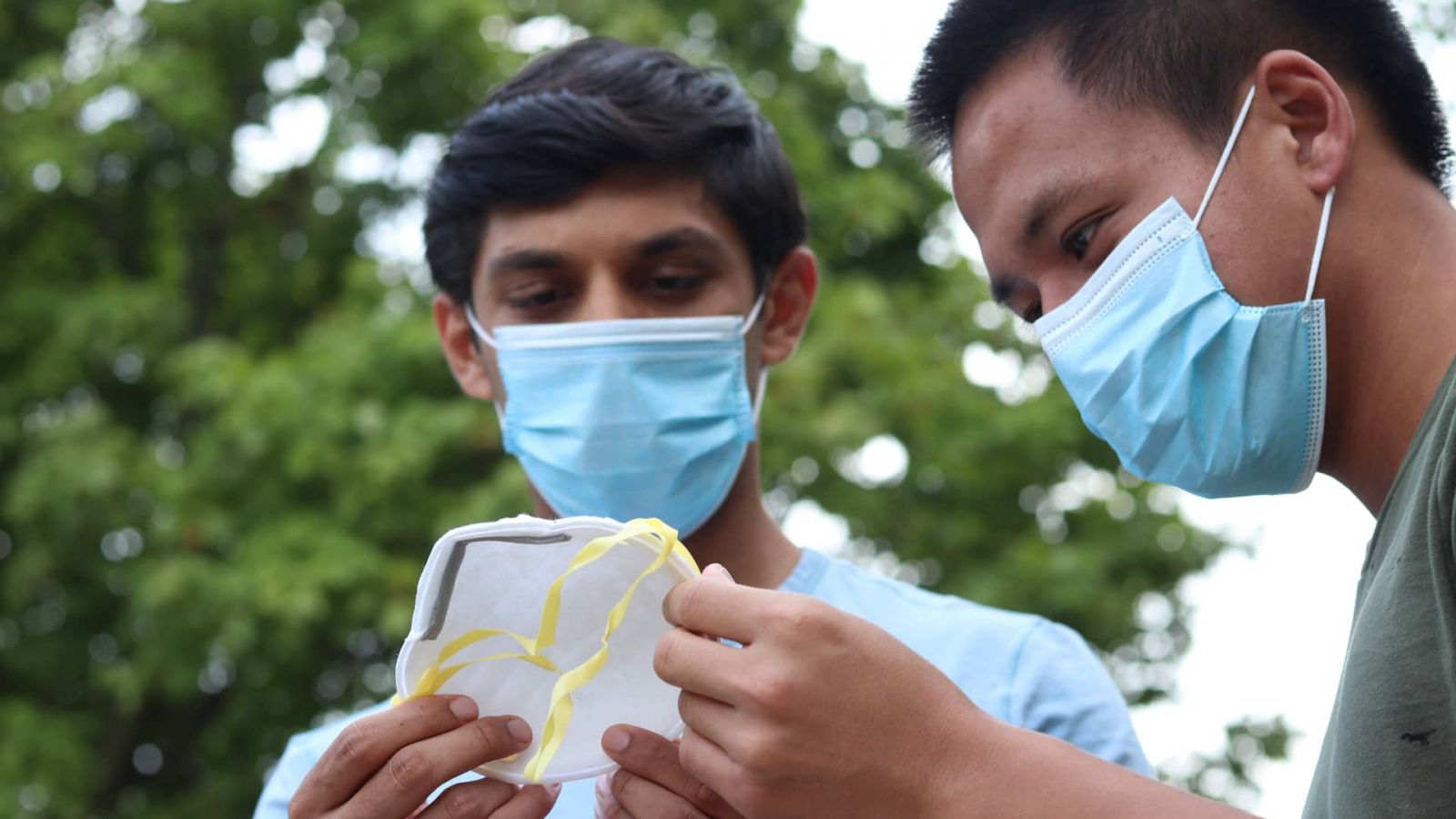
A graduate researcher and his colleagues have developed a new way to extend the shelf life of the N95 mask, a critical piece of personal protective equipment used by health care workers.
Hersh Rai, a graduate student in Purdue Polytechnic’s Dept. of Computer and Information Technology, worked with Nicholas Toan-Nang Vu, a graduate student in mechanical engineering, and Eric Dietz, director of Purdue Homeland Security Institute and professor of computer and information technology, to redesign an N95 mask’s headband and the way it is attached.
“If we mass-produce N95 masks and put them in storage, the filtration systems are known to last a long time,” said Rai. “But the masks’ longevity is limited by the elastic band, because rubber deteriorates over time.”
Rai and Vu, who are both fellows in the Purdue Military Research Institute, explored simple alternatives, including strings made from cotton, other fibers, or plastic. They also designed new ways to attach headbands to the mask.
“The basic N95 mask has four attachment points for the headband, and they’re not very versatile,” said Rai. “We’ve added different fixation points along the edge of the mask that allow the user to have a better fit without compromising the integrity of the filtration system.”
Providing multiple, interchangeable fixation points allows wearers to customize how the masks fit, increasing comfort. Rai said that moving the fixation points outside the filtration system also allows headbands to be replaced, if necessary, after long periods of storage.
The research team’s improved mask design also includes a small protruding flap that allows users to readjust the mask’s fit while wearing it.
“While you’re on the job, adjusting the mask is uncomfortable for many users, and many people are not very aware of where their hands have been,” said Rai. “Touching the mask can lead to cross-contamination.”
The protruding flap, Rai said, allows the wearer to safely adjust the mask for comfort and proper fit.
The researchers’ new N95 mask designs are being patented by the Purdue Research Foundation’s Office of Technology Commercialization. The team is looking for commercial partners to continue developing their technology.
Additional information
- New approach to extend shelf life for N95 mask (Purdue Research Foundation)
- Office of Technology Commercialization
- Purdue Military Research Initiative
